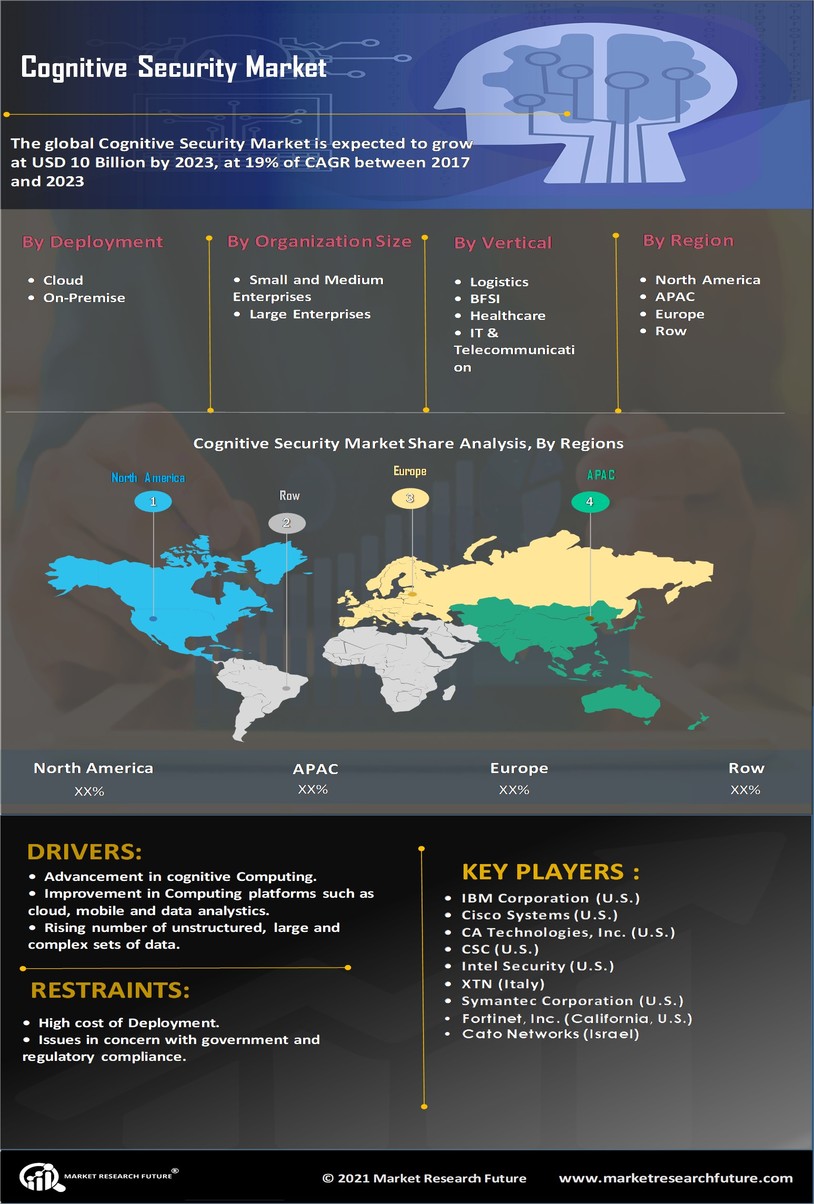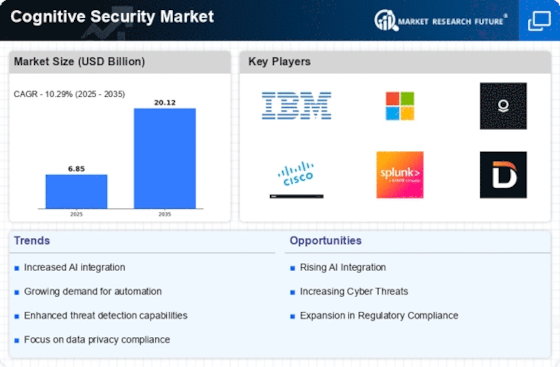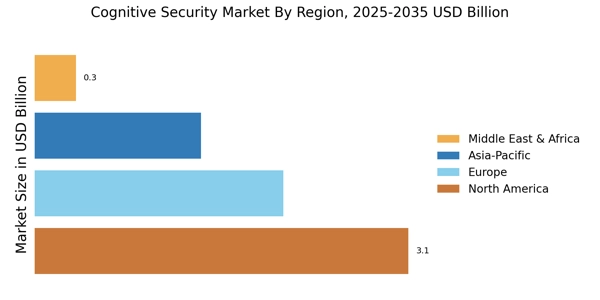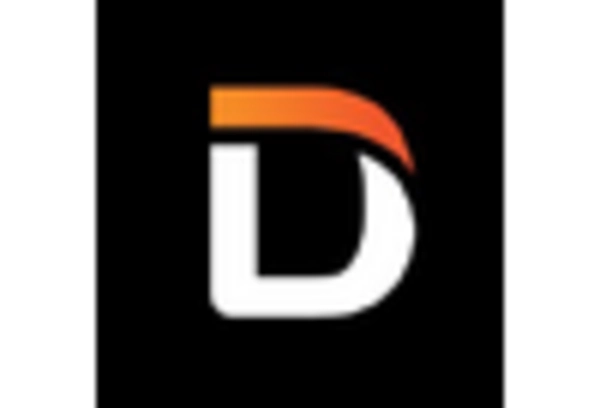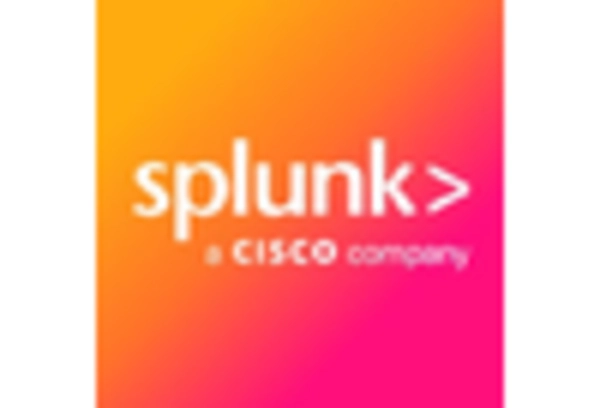Rising Cybersecurity Threats
The increasing frequency and sophistication of cyber threats is a primary driver for the Cognitive Security Market. Organizations are facing a surge in cyberattacks, with data breaches and ransomware incidents becoming more prevalent. According to recent statistics, the cost of cybercrime is projected to reach trillions of dollars annually, compelling businesses to invest in advanced security solutions. Cognitive security technologies, which leverage machine learning and artificial intelligence, are essential in identifying and mitigating these threats in real-time. As organizations strive to protect sensitive data and maintain customer trust, the demand for cognitive security solutions is expected to rise significantly, indicating a robust growth trajectory for the Cognitive Security Market.
Advancements in Machine Learning
The rapid advancements in machine learning technologies are significantly influencing the Cognitive Security Market. These innovations enable systems to analyze vast amounts of data, identify patterns, and predict potential security breaches with remarkable accuracy. As organizations increasingly adopt machine learning algorithms, the ability to automate threat detection and response becomes more feasible. This shift not only enhances security measures but also reduces operational costs associated with traditional security protocols. The integration of machine learning into cognitive security solutions is likely to drive market growth, as businesses seek to leverage these technologies to stay ahead of evolving cyber threats. The Cognitive Security Market is thus positioned to benefit from these technological advancements.
Increased Regulatory Requirements
The evolving landscape of regulatory requirements is a significant driver for the Cognitive Security Market. Organizations are now mandated to comply with stringent data protection regulations, such as the General Data Protection Regulation (GDPR) and the California Consumer Privacy Act (CCPA). These regulations necessitate the implementation of robust security measures to protect sensitive information. As compliance becomes a critical concern, businesses are turning to cognitive security solutions to ensure they meet these legal obligations while safeguarding their data. The demand for solutions that can provide real-time monitoring and reporting capabilities is likely to increase, further propelling the growth of the Cognitive Security Market. This trend underscores the importance of integrating cognitive security into organizational frameworks.
Need for Enhanced User Experience
The demand for enhanced user experience is driving innovation within the Cognitive Security Market. Organizations recognize that security measures should not compromise usability. Cognitive security solutions are designed to provide seamless protection while ensuring that user interactions remain intuitive and efficient. By utilizing advanced analytics and behavioral insights, these solutions can adapt to user behavior, minimizing friction during security checks. This focus on user experience is likely to attract more businesses to adopt cognitive security technologies, as they seek to balance security with operational efficiency. As the market evolves, the emphasis on user-centric security solutions will play a crucial role in shaping the future of the Cognitive Security Market.
Growing Adoption of Cloud Services
The widespread adoption of cloud services is reshaping the landscape of the Cognitive Security Market. As organizations migrate their operations to the cloud, they face unique security challenges that require innovative solutions. Cognitive security technologies are increasingly being integrated into cloud environments to provide enhanced protection against potential vulnerabilities. The cloud's scalability and flexibility, combined with cognitive security's proactive threat detection capabilities, create a compelling value proposition for businesses. Market data suggests that the cloud security market is expected to grow substantially, indicating a parallel growth trajectory for the Cognitive Security Market. This trend highlights the necessity for organizations to adopt cognitive security measures as they embrace cloud technologies.
